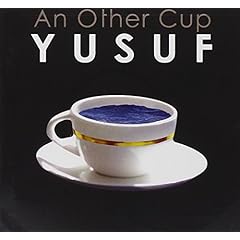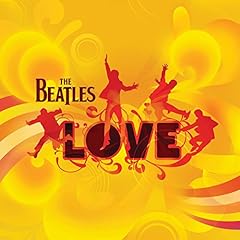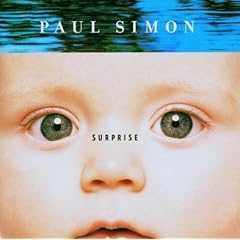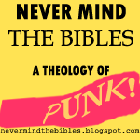Roget and me
I've been a fan of Roget's Thesaurus of English Words and Phrases since Jesteen Fetterhoff, a bookish friend of my grandmother's, gave me my first (and so far, only) copy of this treasure as a high school graduation gift. The year was 1978, and the copy Jesteen gave me is copyright 1937. You'd have to know Jesteen, I guess, to appreciate this fact. But it was in fine shape, if a bit musty in aroma, but all fine books should have a musty odor to them. I've had the volume rebound, and though its edges are frayed and its pages sepiaed over time, I still love this volume. It maintains a prominent spot among the reference books within arm's reach of my computer here at work, along with two stylebooks (the venerable AP Stylebook and Libel Manual and less venerable but entertaining Wired Style), the Webster's New Collegiate Dictionary, Bartlett's Familiar Quotations, The Full Life Study Bible, an alumni directory from my alma mater, an alumni directory for the university that employs me, a few university publications, and a phone book. Although I tend to use the thesaurus feature of my word processing software when I get in a jam, my old pal Roget is still right there among the most important reference books.
It took me awhile to warm up to Roget. I was more accustomed to the alphabetical order of organization. But once I grasped Roget's existential arrangement -- words categorized by meaning, rather than the randomness of alphabetization -- I began to appreciate the mind of the man who created this wonderful resource. Now I find at least one other person who appreciates Roget as well -- enough to write a book about the man and his book. It's called A History of Roget's Thesaurus, but at $99 it's a bit pricey for me. It probably is for you, too. So let's read a review of the book instead.
Like me, the author of A History of Roget's Thesaurus, Werner Hullen, is interested "in the whole of Roget's 'archaeological underpinning': lexicography governed by meaning, not by the alphabet; what Hullen calls topical (or sometimes onomasiological) lexicography."
Whew. Heady stuff there. The reviewer notes that Hullen's work attempts to record "evidence bearing on the unsolved question of how words are stored in the mind: whether by content or form, by meaning or derivation. The important point, to him, is 'the general creativity of the human mind in organizing vocabulary in the brain.' He addresses Roget's own linguistic work only in the last chapter, where he declares the Thesaurus to have been 'erected on a massive foundation of linguistic ideas which had accumulated during the preceding centuries of European cultural history.'"
But as the reviewer points out, "Roget is shown to have had little awareness of the base he built on. His references, in his introduction, to the plentiful literature Hullen sets out were sparse. The disregard was mutual. Later 'synonymy studies' left Roget unmentioned."In plain terms, he was an amateur. He was a doctor who liked making lists, and his longest list was of words. His purposes were not scholarly; they were practical. Words were tools. He did think there was one high purpose the Thesaurus might serve: since its plan could be applied to any language, the work might ease the growth of a universal language. But his main aim was simply to help people compose the written or the spoken word well. "The writer, as well as the orator, employs for the accomplishment of his purposes the instrumentality of words. ... It is therefore essential to his success that he be provided with a copious vocabulary."
Words were tools. Maybe that's why I liked Roget and his thesaurus so much. We both appreciate the tools of language.
Thanks to Books & Culture for the link.
:: Andrew 08:12 + ::
...
bloggedy blog
bloggedy blog recommends
bloggedy pod (my podcast page)
Independent hotels
in Missouri
eMusic's Power Charts: The Most Interactive Music Charts Online.
In rotation
What I've been listening to lately. Click album cover or hyperlink to hear track samples and learn more.
 Rickie Lee Jones, Sermon on Exposition Boulevard
Rickie Lee Jones, Sermon on Exposition Boulevard
 Patty Griffin, Children Running Through
Patty Griffin, Children Running Through
 Of Montreal, Hissing Fauna, Are You the Destroyer?
Of Montreal, Hissing Fauna, Are You the Destroyer?
 Field Music, Tones of Town
Field Music, Tones of Town
 De Bossen, The Girl Collection
De Bossen, The Girl Collection
 Cold War Kids, Robbers & Cowards
Cold War Kids, Robbers & Cowards

Frida Hyvonen, Until Death Comes

Tratore Basics Vol. 2, Novo Rock Brazil
 Yusuf: An Other Cup
Yusuf: An Other Cup
 The Beatles: Love
The Beatles: Love

The French Kicks: Two Thousand

The Blow: Paper Television

Freedom Haters Unite! A Bloodshot Records Sampler

Swan Lake: Beast Moans

Prototypes: Prototypes

Scanners: Violence Is Golden

Voxtrot: Mothers, Sisters, Daughters & Wives

Voxtrot: Your Biggest Fan

Macon Greyson: Translate

The Evens: Get Evens

Veruca Salt: Veruca Salt IV
 Bob Dylan: Modern Times
Bob Dylan: Modern Times

Pink Tuscadero: Look Your Best

Leigh Nash: Blue on Blue

Yo La Tengo: I Am Not Afraid of You and I Will Beat Your Ass

The Hold Steady: Boys and Girls in America

Bobby Bare Jr.: The Longest Meow"

The Be Good Tanyas: Hello Love

The Lemonheads: The Lemonheads

Ben Kweller: Ben Kweller

The Pipettes: We Are the Pipettes
 Paul Simon: Surprise
Paul Simon: Surprise

Exene Cervenka and the Original Sinners: Sev7en
 Johnny Cash: American V: A Hundred Highways
Johnny Cash: American V: A Hundred Highways

The John Doe Thing: For the Best of Us

The Fondas: Runaway Bombshell

Buzzcocks: Flat Pack Philosophy

Asobi Seksu: Citrus

Tapes 'n Tapes: The Loon

Various Artists: 2006 Pitchfork Music Festival Sampler (24 free tracks)

The Futureheads: News and Tributes

The Bottle Rockets: Zoysia

Camera Obscura: Let's Get Out of This Country

Art Brut: Bang Bang Rock & Roll

Drive By Truckers: A Blessing and a Curse

The Raconteurs: Broken Boy Soldiers

Belle and Sebastian: The Life Pursuit

Cat Power: The Greatest
bloggedy tags
from our sponsors
for your viewing pleasure
24x7
rocketboom
the Richard Show



 Simon Dawes,
Simon Dawes,